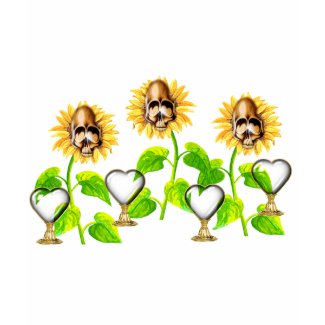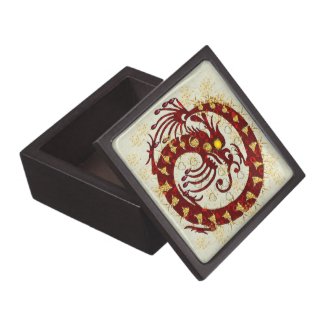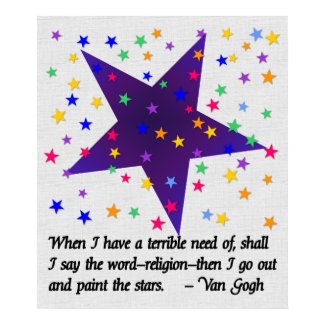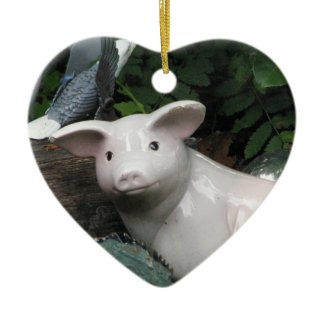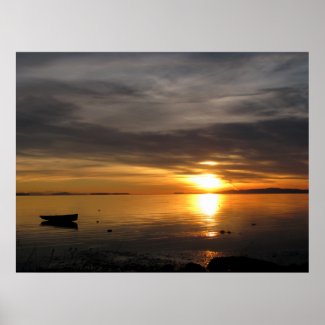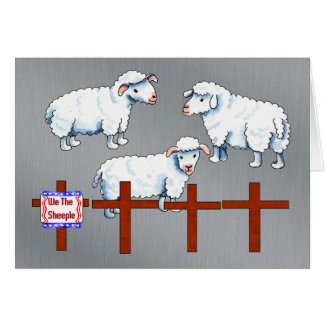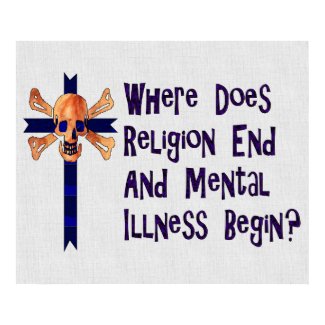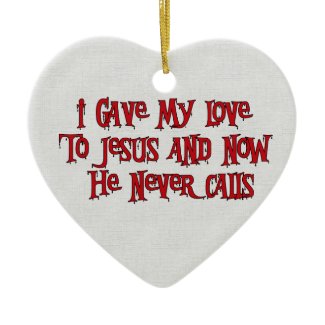Traveling through the insightful landscape can be triggered by drama, trauma, or simple family and/or community dysfunctionality. There's nothing like the festering stench of unresolved issues to propel you forward into the clear insight of putting never again at the top of your New Year's resolutions. Holidays remind you that time doesn't wound all heals; sometimes it sits you across from them at the dinner table and forces you to confront them along with your own demons.
There is also the horrible loneliness of trying to celebrate a holiday when there's missing friends and family. No matter how big the party is, no matter how much time has passed, the places at the table filled with different people will always serve as a reminder of those no longer with us, whether by death, divorce, or choice. And the longer they've been gone, the more sainted or evil they become, which leads to the person occupying their former seat inheriting the will never be good enough tag or the impossible expectation of will always be better so you better not screw up tag. And there will certainly be at least one person, if not several, who see you as seated in one of those preconceived chairs, no matter how much you try and deny it.
The best way to get through the holidays is to constantly remind yourself that this too shall pass, and in the morning the blinding hangover will be worth an evening of blocking out grandpa's annoying new trophy wife, the cousin who chugged the good brandy, the ex who either shot if looks could kill glances your way all night, or worse yet, came on to you after draining the liquor cabinet, and the people making polite conversation with you so they can gather enough dirt to gossip about you later.
Or you can take complete charge of your own life and happiness and celebrate the holidays with only those you choose. No relatives you'd have nothing to do with if they weren't family, and especially none of the obligatory serial spouse acceptances that comes with that familial baggage. No monster ex's tolerated for the sake of the children. No neighbors who annoy you 364 days of the year but then you have to both pretend that's okay for the sake of the holidays. No hordes. No crowds. No drama. No hysterics.
But truthfully, we're not that brave so the option left is to wait until old age decides for us. At some point in our lives we look around and realize that the herd has been drastically thinned by time. We no longer have to get together for the sake of the kids, because the kids are too busy getting together for the sake of their kids. The relatives are either dead or are playing weird grandparent to their own children, and our friends become those who have endured the cruel tricks of time with us, and yet are still around to share memories and insights it takes years to develop. Occasionally, all those various spokes get together in one wheel called "the family reunion," but more accurately known as the yearly Championship Drinking and Perpetual Regret Event.
For most holidays, old age happily determines the guest list. One of the best ways this delightful reward of finally being able to choose your own holiday company was illustrated in my life by two separate recent events. The first one was a conversation with a man ten years younger. From the beginning, we failed to agree on the concepts of generosity, compassion, and the unyielding (to me, anyways) obligation to help ease the suffering of those less fortunate. After several days of futile arguing, I realized we were living in different worlds.
His was a world of things, and mine was a world of people. His was a world where looks still mattered, the inner world was simply icing on an attractive package, and mine was a world where we're all starting to look the same: old, gray and wrinkled with only the inner world having special value. His was a world of grudges and resentments, and mine was a world of not having time for that useless crap because there just weren't enough years left to let it take the place of more important things to focus on. I never managed to explain to him that when you're looking at a life span that could be measured in years instead of decades, perspective changes drastically.
There are crucial decades in life where being separated by them can be an insurmountable wall and I'm convinced, with rare exceptions--usually musicians and other artists who know what it means to struggle and sacrifice and need help from others to practice their art for the enjoyment of others, the decade between being fifty and sixty is one of them. I no longer try and argue with those in that age gap. I know what's coming for them and all I can do is just whisper under my breath: just wait, you arrogant little twit. One day you'll understand. It's amazing how satisfying that is.
But the second event really brought it home for me. I was walking on the beach and saw a group of four people, all at least seventy if not in their eighties. They had that feeling of longtime friends who knew each other so well, they walked as one being. One of them bent down to the water and picked up a flat rock, and then he flung it with expert ease so it skipped gracefully across the water. Then another one followed until they were all standing there giggling, skipping rocks, and being the little kids again they obviously were many decades ago together. Sure, their bodies didn't move as easily or gracefully, but the ease of friendship, the smiles, and the ending and walking away together in unison more than made up for it.
I suspect they were childhood friends who moved away, raised families, lost touch, mourned and grieved so often they no longer could say how many they lost without stopping to think. As old age crept up on them, they retired and then eventually reconnected on a beach filled with other people who were in the same stage of life, and once again they became the children who set the first stitches of those bonds many years ago because being old allows you the freedom to be young again.
As I watched them walk away I understood that what I wanted to say to the young fool ten years younger than myself was that the middle years really don't count. They're simply a way of passing time until we can grow old and return to something very similar to those early years, only this time with the friends and family of our choice.
I want him to know it's a special time when we don't have to explain or defend the path that brought us together. We already know it led us to a time of life when we have to support each other unconditionally because society has long written us off as useless and in the way and our bodies no longer allow us such things as fresh starts. We're all we have because we know friendship means depending on each other and the older we get, the less guilty we feel about it and the more willing we are to help each other without expecting anything in return.
My poor acquaintance has long forgotten and has yet to remember once again the value of a simple rock skipping across the waves and the memories it awakens in an aging body. He can't understand yet why the older you get the more you're willing to help other people who have less, even if it means sharing your last piece of bread. He hasn't gone through the decade yet where you begin to understand you're on your own because the young don't care about you, and you see them always finding new and more selfish ways to turn away from the old and elderly.
But most of all, he doesn't know that as we aged and experienced this, we vowed never to treat each other that way, that we knew our survival depended on being able to give and receive love, compassion, generosity, and the help of others. He doesn't understand that true freedom means letting go of the need to define everything from a material perspective and learn to define wealth as true, unbreakable friendships that endure beyond time, money, and material wealth.
But most of all, he can't understand until he has lost nearly everyone in his life and is left with just a handful of cherished and handpicked friendships, that we would easily give up every single possession we had just to spend one more day with a beloved friend no longer with us so they could skip rocks on a beach and sigh happily with the contentment of a life time friendship. He just has to wait and get there himself once he crosses that last bridge of things and appearances. Only then will he understand that it's the very young and the very old who possess the keys and tools to create a better, more compassionate world.
We just have to get the middle to understand this before they've lived the lessons that will teach them this valuable and cherished truth because our planet cannot handle more selfishness and greed. We have to move toward generosity. We have to learn how to give without expecting anything in return.
But it can't come from the old or the young. No one takes what we have to say seriously enough to make any major changes. It has to come from the few and rare exceptions, the true givers, the truly unselfish, the amazingly kind and loving human beings within their own generations. That is the only way we will ever have a better world because change must come from inside us, from our own circle, from our own peers who have the wisdom to see beyond their own time and place. Other than living long enough, it just can't happen any other way.
